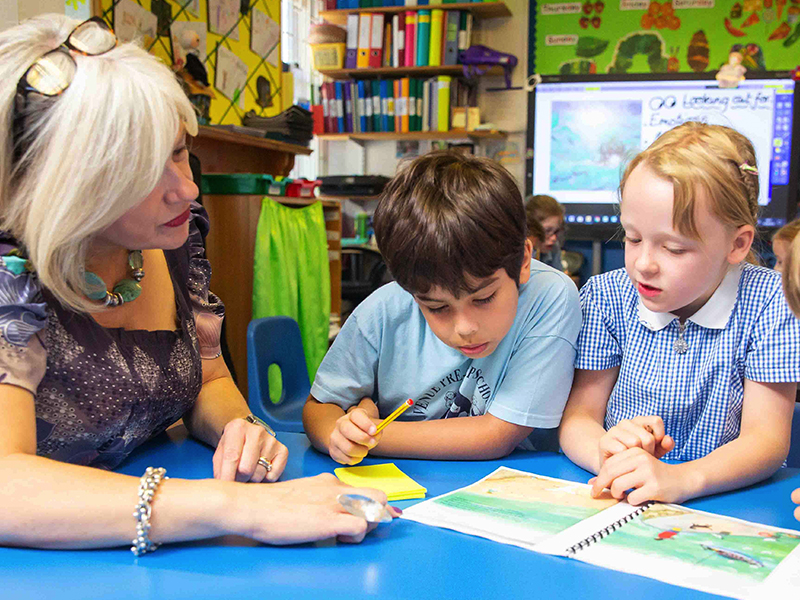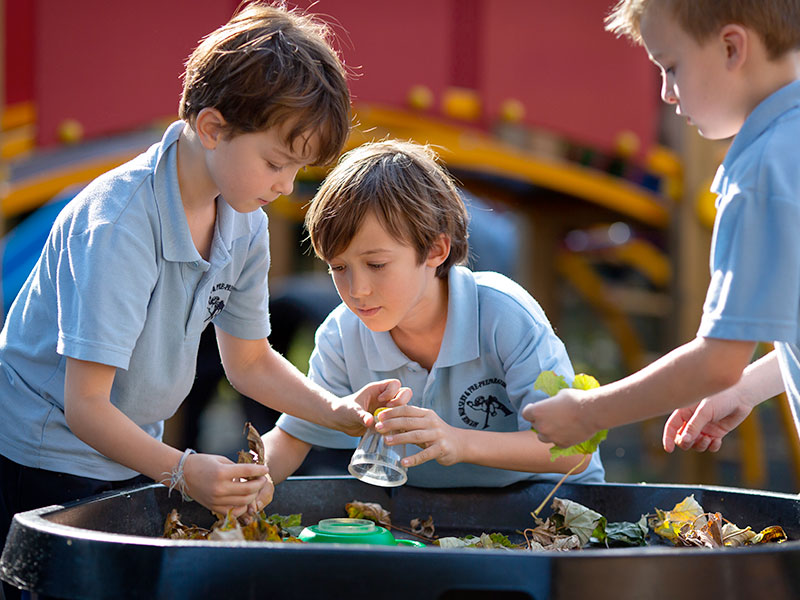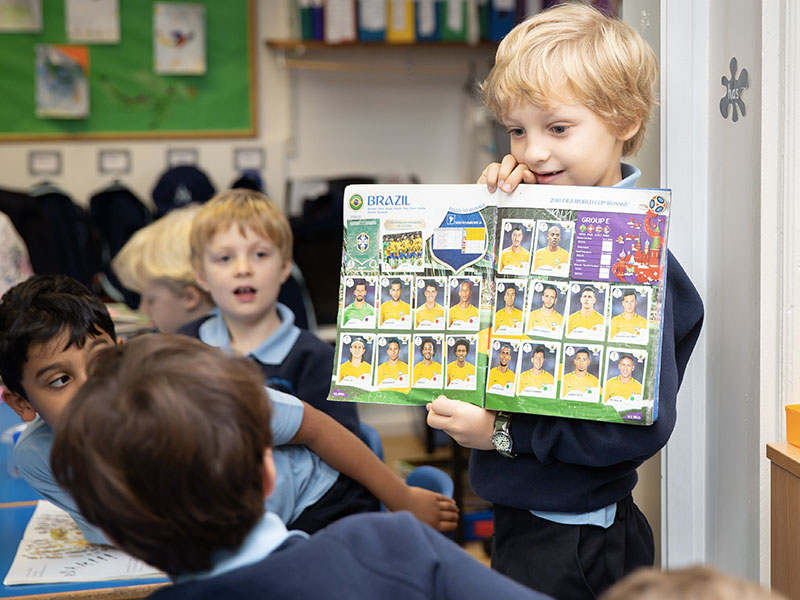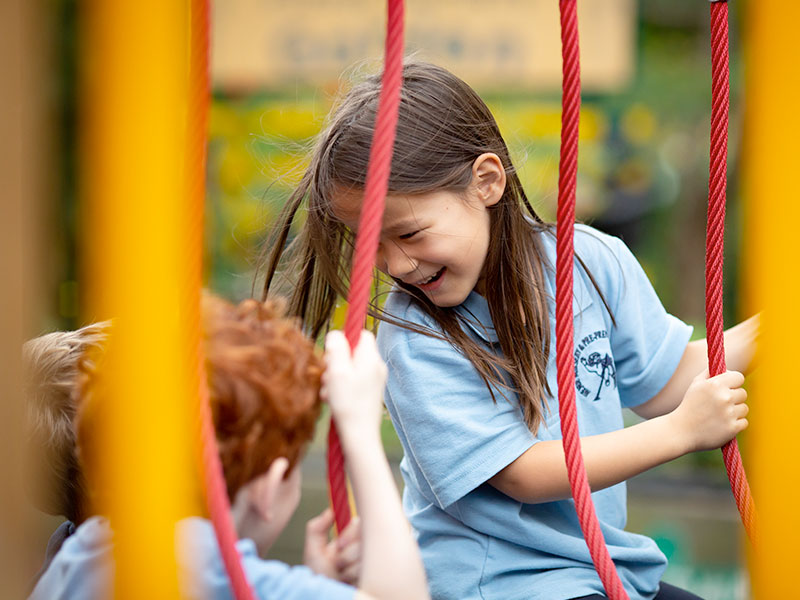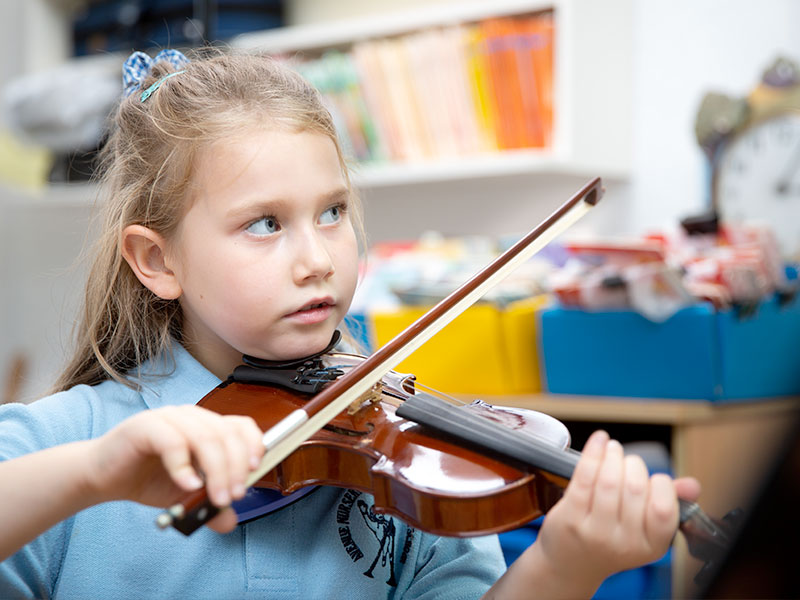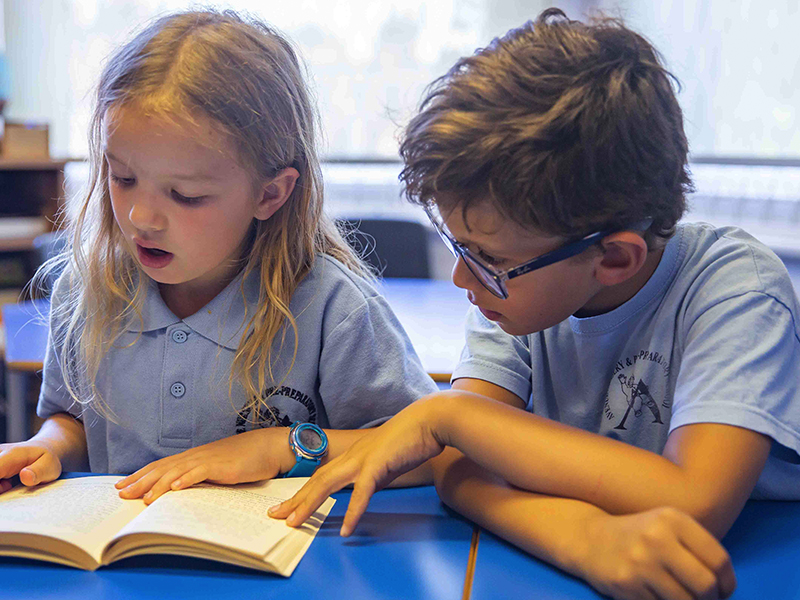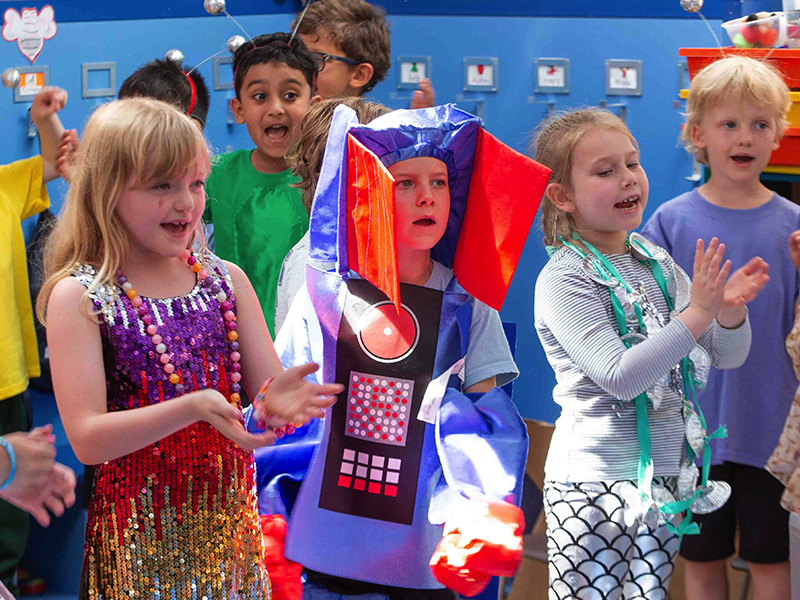Year 2
8:30 to 3:30 pm Monday to Friday
except Thursday when they all finish at 4pm
Curriculum
The school follows, but is not restricted by, the English National Curriculum. In Year 2 the curriculum embraces the core subjects of Literacy, Numeracy and Science with great emphasis placed upon developing reading, writing and mathematical skills. We take the children throughout the year on stimulating educational school trips. These reinforce areas of learning and the enthusiasm it can bring to a topic is immeasurable.
I.C.T. is used throughout the curriculum in all subjects and every classroom is equipped with Interactive Whiteboards.
During Year 2, children are taught how to give, receive and follow instructions accurately, read and present work to the class and participate in year group assemblies. These latter events build confidence in speaking and sharing opinions. Children also gain confidence whilst reading aloud through group reading activities and predicting and retelling stories as they develop a wide range of reading strategies. Through a combination of weekly spelling tests and dictation, children learn about grammar and develop a variety of writing styles, including writing stories with structure and imagination.
In addition to participating in role play and drama, children continue to develop their listening and speaking skills and gain the confidence to ask and respond to questions through Show and Tell sessions and through class discussion.
The scheme used for the teaching of Phonics continues to be Jolly Grammar and our main reading scheme for KS1 is predominantly The Oxford Reading Tree (ORT). At the end of each ORT stage we supplement with a variety of books from other schemes to expand the children's experience of reading a variety of different fonts, styles and genres. Proficient readers become 'free readers' and are allowed to choose books from our well stocked Library.
Children to continue explore punctuation, grammar and sentence construction, hone their spelling skills and plan and proofread and edit their written work.
Children learn about Maths in a practical, hands-on way, using day to day situations that they can relate to. They work individually, as a whole class and in groups. The children use a range of equipment and resources to help develop their mathematical understanding. They deepen their understanding of mathematical concepts by applying their maths knowledge to a variety of situations and challenges during problem solving sessions. The children are encouraged to work systematically, look for patterns, break down problems into smaller chunks and persevere with tasks.
Year 2 continue to develop their skills in identifying similarities and differences between ways of life in recent and past history. They are also made more aware of the cause and effect of events and how these events influenced the past. They are encouraged to ask and answer questions referring to stories and other sources.
The students become history detectives by asking more pertinent questions about artefacts, why events happened, why people acted in the way they did and how events made a difference to society locally, nationally or internationally. Throughout the topics the children will learn and use a wider vocabulary of everyday historical words enabling them to ask and answer questions in more detail and talk about features and concepts such as segregation with understanding. The children discover that there may be different versions or viewpoints of the same event.
Pupils develop their knowledge about the world, the United Kingdom and their locality. They begin to use geographical skills, including first-hand observation and mapping skills to enhance their locational awareness. They learn to identify seasonal and daily weather patterns in the United Kingdom and look at examples of extreme weather across the World.
In year 2 Science, the children study the natural, animal and human worlds to deepen their knowledge and understanding of growth and change. The children are introduced to a range of enquiry based skills to give them the tools for designing their own scientific investigations.
Throughout this academic year, the focus is on developing the inner ear in music and aural memory through singing. The children engage in fun activities focusing on rhythm, pulse, pitch, melody and phrase and structure, often using their thinking voice. The aim is for the children to internalise the basic musical concepts – pulse, rhythm, pitch, melody and phrase. The children are encouraged to listen to a simple rhythm and then convert it into rhythm sol-fa. They improvise their own simple rhythms for the class to enjoy. All the musical activities are playful and engaging. All children in Year 2 sing in the Choir and at the end of the year, perform in the end of Year Production. String playing continues throughout Year 2.
Through circle time sessions the children discuss and explore rules, learn about taking responsibility and understand and embrace their individual identities. They look at healthy lifestyle choices and how they grow and change; learn how to live together and make friendships work by embracing individuality and celebrating differences.
The children continue to develop their knowledge and understanding of Christianity and the other main religions of Great Britain. They discover ways in which beliefs, values and traditions influence people and communities. The children continue to explore the teachings of major faiths in order to inform thoughtful judgements about religious and moral issues. They are encouraged to become increasingly positive in their attitude towards others, to respect others’ beliefs and values and to develop the ability to live in a multi-faith society. The children explore the idea of special places and belonging to a community. We discuss places where people choose to go to be alone with God and to pray. The children look at places of worship, their symbolism and the ways in which they are used.
In Year 2, the children develop their word processing skills. They learn about PowerPoints producing a simple presentation and begin coding using a variety of tools and equipment.
To extend the children’s cultural and linguistic skills, French is taught weekly by our French Teacher. During these sessions the children take part in playing games, singing a wide repertoire of French songs, participate in role play and other practical activities. Through these activities all the children are eager and happy to engage.
We also offer a variety of specialist subjects to further encourage the pupils' education including; art, dance, drama, swimming, gardening and after school clubs. To Learn more about each of these options please visit our school life section.
Our work is very much in partnership with parents. We aim to build positive and proactive relationships with families to ensure the best outcomes for your child. We use a dedicated, secure portal to share updates and photographs from your child’s week and operate a consistent ‘open door’ policy so that any concerns you may have relating to your child and the School are dealt with efficiently and effectively.

